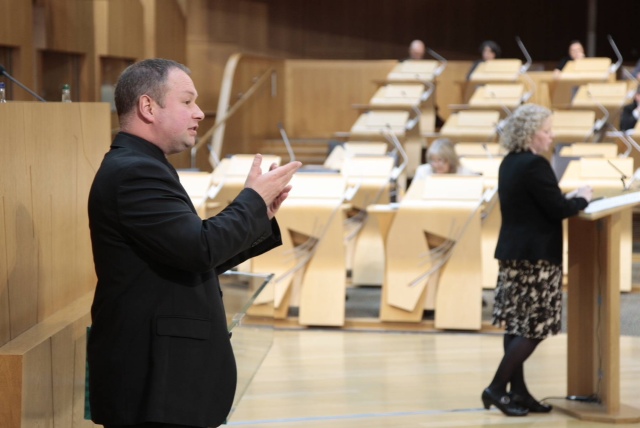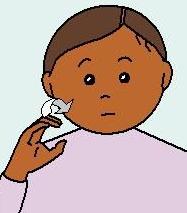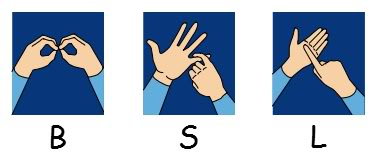Notes: BSL / English Interpreter
 What is your name and for whom do you work?
What is your name and for whom do you work?
My name is Paul Belmonte and I work as a BSL/English interpreter for Deaf Action in Edinburgh.
Why do you consider languages are important? What role have they played in your life?
I’ve always loved language and learned some Italian at night school, just for fun and to be able to enjoy visits with my family in Italy. It’s great to be able to meet people and chat with them in their own language!
Why did you choose BSL?
I’d met a number of Deaf people so had learnt basic fingerspelling using the BSL alphabet. However, I wanted to be able to communicate properly, so I signed up for a sign language class in 2001. I enjoyed level 1 so much that I signed up for level 2 and my inspirational tutor encouraged me to go onto the interpreting course at Heriot Watt University. That was the start of an exciting and satisfying career!
Why is it important to learn BSL?
British Sign Language is one of the UK’s four indigenous languages. It is particularly important because the Deaf community have limited or no access to spoken language, so visual language is the only way for many to communicate and access information.
Is it difficult?
In some ways, BSL is quite easy to start learning. The fingerspelling alphabet can be learned in around half an hour and many signs are easily recognisable; for example the sign for “cat” describes its whiskers and the sign for drink involves making a drinking motion with your hand. However, BSL’s grammar and word order are completely different from English. Spoken languages happen in lines, with one word coming neatly after another. Signed languages are created in 3D space, often with lots of elements happening at the same time, so it does take some time to get used to.
How many people speak it?
According to the 2011 census, there are 13,000 BSL users in Scotland. Considering there are only around 80 BSL interpreters, we are kept pretty busy!
 How do people in prison or hospital cope if they only use BSL as a means to communicate?
How do people in prison or hospital cope if they only use BSL as a means to communicate?
I find my job so satisfying because I’m able to facilitate communication, which is fundamental to all of our daily lives. I regularly work in medical appointments, hospital clinics, parents’ evenings in schools, employment meetings, legal settings, Parliament, conferences, weddings, funerals, theatre… in fact, anywhere people might have to communicate. I’ve even worked out in the woods, in a tractor and in a canoe! Because many Deaf people use written English as only a second language, the only way for them to communicate clearly is by using an interpreter.
What is the best way to start learning BSL?
There are some excellent online resources, but the best way to learn a language is directly, from a fluent speaker. I am lucky to have had some exceptional Deaf people teaching me their language and still learn from them every day. No matter how fluent I get, I will never be able to use BSL like many of the very eloquent people I work with.
What kind of image do you think British Sign Language has? Are most people aware of it?
Because of its visibility in television and the media, I think more and more people are becoming aware of BSL. Some seem to think that it’s simplified, visual English, but it’s a hugely complex language in its own right, capable of highly technical detail and of reaching the heights of poetic beauty. I feel very privileged to be learning it and to be able to work within the community that uses it.

In the following video, Paul tells us more about his job as an interpreter.
Find out more about being an Interpreter on the My World of Work website.
View Paul's video on the My World of Work website.
Return to Job Profiles